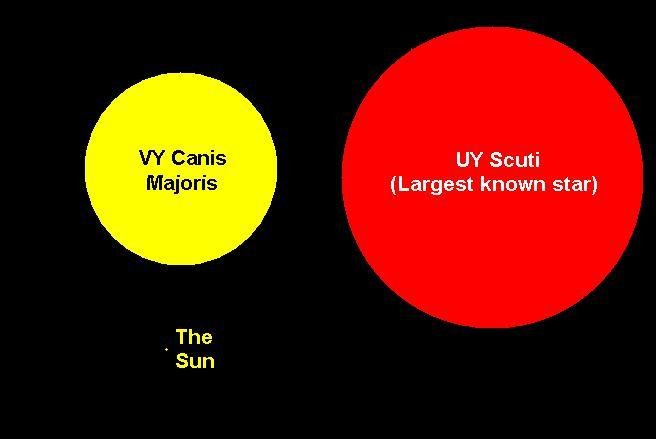That's not how quantum works. You are confusing being measured with "knowing being watched". Measurement in the definition includes contact with light and other objects. Secondly you can't say thermo doesn't work in quantum because thermo is a statistical phenomena due to the average motion of many particles. And while the quantum nature of objects can have effect, especially at very low temperatures or very dense objects, they don't violate any fundamental thermo laws. Nor do quantum objects violate energy conservation, despite the time/energy uncertainty.
.
I've heard the second law can be violated for
short timescales in small systems,
If they looked back at us they would see the world as it was 1500 years ago. Barely any lights in any city or radio waves coming from us at that point. They would've looked here a long time ago and went to search elsewhere..
Well, larger telescopes doesn't really mean anything if there is nothing to see in the first place. We are also 1480 lightyears from them, so at best they can only see Earth as it was in the year 535 or so. That was centuries before Earth began to broadcast radio waves or produce significant light pollution. Heck, Earth still had most of its forests back then. There would be very little evidence to an outsider that there was an intelligent species on our planet, unless they landed a spaceship on the planet. It will be over a thousand years from now before human civilization will become more evident to them.
.
They would know earth is earthlike in the goldilocks zone, and also likely that it harbors life. That's enough incentive to visit and or start sending signals this way.
edit: Also I hypothesize that they may be able to build some kind of solar system size hypertelescope, by using millions of satellite telescopes and pointing them at some direction, through optical interferometry such may or may not enable more details to be gained.
The following is for hypertelescopes that can conceivably be built with our technology, much smaller than what such a hypothetical super civilization could build[a solar system or larger than solar system hypertelescope]:
Labeyrie and colleagues have shown how a technologically feasible hypertelescope could be used to detect surface features such as continents, seasons, and climates on worlds as far as 10 light-years away. -wisegeek
As for why they'd ignore us...
Either a.) habitability is useless to them and or b.) life on other nearby planets is of no concerns to them.
I imagine a species that advanced would have little interest in our solar system. They can harvest the energy of stars, and ours is small. They also would likely be able to terraform planets to their conditions and synthesize basically any substance. What good is a tiny planet full of water, nitrogen, and trace amounts of common metals?
To study indigenous lifeforms?
Nope, this is what's been disproven. Now we're getting out of my depth, but basically its been shown repeatedly that the decision between which particle is "left handed" and "right handed" is
not assigned at the time of entanglement and just unknown to us until we measure. It really is that the state of both particles is undefined up until the point of measurement but that measuring one means you know the measurement of the other
https://en.wikipedia.org/wiki/Bell's_theorem
Hidden variables have not been disproven, either nonlocal hidden variables or superdeterminism allow for the existence of predetermined outcomes.
The following makes more sense of the idea of the wave particle nature of matter:
Deterministic Fluid models of quantum mechanics
I'm still skeptical of the very idea of the singularity. It seems predicated on a blind belief that intelligence and computational power are capable of infinite growth, which I am doubtful of. No matter what, any computer is dependent on being built in the physical world, and thus has to deal with physical limitations. Eventually people are going to hit the limits of what is physically possible with computers.
There are limits, but it all depends on how far they are, some estimates of the brain and future computational limits give the following
[a] nanoteched grain of sand has a total bit switching (computational) rate that is a factor of a quintillion (a million trillion) times larger than the [human] brain’s- De Garis
Now that might be a bit overoptimistic, but it is indeed a question how fast can computers go, there is the idea of things like reversible computing, that if they prove viable would mean that we would only be limited by manufacturing technology but could build volumetric technology. Assuming molecular components, you only have to speak to a chemist to know just how many molecules there are in 1 Cubic meter of X molecular constitution. With such number of elements you're talking ridiculous processing power.
The idea is that once intelligence is cracked, you have 24-7 scientists, these scientists can have iq as high as human and probably higher if not far higher. On top of that they can likely operate faster than realtime in simplified simulated universes, some estimates indicate up to a million fold speed up is conceivable. Using advanced supercomputers they can also conduct experiments via simulation at faster than realtime 24-7.
Imagine millions or billions of scientists working 24-7 say at 10x the speed of humans, able to rapidly exchange memories and with interconnected minds and knowledge of all domains. Even a 2x speed up 24-7 scientist would radically accelerate things, a 10x or 100x let alone 1000x or million x sped up scientist is completely unimaginable even at human levels of intelligence. If intelligence surpassing humans is possible, a theory of the nature of intelligence will likely open the way to bringing such to the table.


